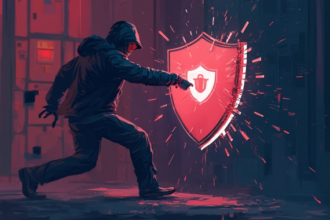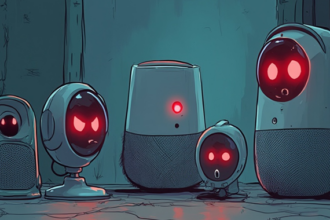Baan Lin knows the ins and outs of the tiny chips that power our phones, cars and gaming consoles, and he knows there aren’t enough workers to keep up with surging demand.
The electrical engineer began his career at IBM in 1970 but eventually returned to his Taiwan roots, helping transform the island democracy into the world’s chip-making center. He led technological advances at Taiwan Semiconductor Manufacturing Company, today the crown jewel of Taiwan’s tech industry.
Now he’s tasked with preparing the next generation of leaders for a darker, more challenging future for the technology that makes so much of modern life possible.
The semiconductor world has changed since the former Taiwan Semiconductor Manufacturing Co. vice president left the business. A severe chip shortage caused by the pandemic exposed the breaking points of a complex global supply chain. Rising geopolitical tensions have created mistrust and prompted countries to pour money into their own chip manufacturing facilities.
Meanwhile, artificial intelligence is driving demand for more efficient microchips, but semiconductor engineers are running up against the physical limits of Moore’s Law, the long-held prediction that the number of transistors on integrated circuits will double every two years, making them smaller and faster.
The number of workers needed to design, manufacture, test and package all those chips will be enormous: semiconductor companies will need more than one million additional skilled workers by 2030, according to consulting and financial services giant Deloitte.
Now dean of the School of Semiconductor Studies at Taiwan’s Tsinghua University, Lin knows he can’t close the gap. His school, founded with government support three years ago to address a growing talent shortage, trains about 100 students a year, far short of the 10,000-plus extra workers needed each year in Taiwan alone. But he hopes that few will become the leaders who drive Taiwanese companies forward.
Its unparalleled technological competitiveness is even more important for the island, which faces the threat of military attack from China, which claims the island as part of its territory. Taiwan makes one-fifth of the world’s chips and 69% of its cutting-edge chips. That advantage has become known as Taiwan’s “Silicon Shield,” as countries that rely on Taiwan’s chips have an incentive to cooperate in protecting them.
The Times spoke to Lin about efforts to keep Taiwan’s talent at an edge amid an intensifying race for semiconductor chip independence, and how that competition is changing the industry. The interview has been edited for length and clarity.
How is the semiconductor worker shortage affecting the industry? Does that mean some countries are falling behind?
Countries have become more selfish, so to speak: they only care about their own interests and forget that the growth of the semiconductor industry requires a great deal of cooperation.
There are several countries that are good at manufacturing equipment, such as the United States, Japan, and Germany. There are several countries that are very good at design and very innovative. The United States also contributes a lot in this field. And there are also countries that are good at manufacturing. Even in the United States, we have Intel and Micron. And people think that our TSMC is very powerful, but if they don’t get all the materials and equipment, they will stop operating in a few weeks.
So if you have four countries wanting to become independent, it just scales back the process and makes the effort very uneconomical. Instead, you have to do four times as much research, much of it duplicating each other’s work.
So does this mean that acknowledging interdependence will ease labor shortages?
Well, that would alleviate a lot of that. For students in the US, most students, if they go into semiconductors, they want to go into design. So where do you find talent in other areas?
Is the shortage due to increased demand or fewer people being interested in the field?
both.
There is a huge need for more advanced chips. And there are many other fields that people can choose from. In Taiwan, semiconductors used to be the first choice. But now they are looking at so many other fields, such as the financial sector, medicine, biosciences, politics, and so on.
I think the situation is even worse in the US and Japan because they have many more options. They would rather work for Apple or Google than work for (a chipmaker like) Intel. Intel used to be a very attractive employer. Not anymore.
Most of the freshers want to learn design and not manufacturing process. That is the global trend. Here we are no exception. People think it is much more comfortable to sit there, right? They don’t need to dress up in the clean room (where semiconductors are manufactured). They can just move their fingers instead of moving their feet.
There are social implications to that as well. The internet is so easily accessible that you soon find all of your students are contaminated. They’re all connected to the web, and everyone thinks it’s much better to sit at a desk and work than to work in a clean room. A lot of people are moving on to an easier life.
We have to make people’s lives more comfortable. For example, in Taiwan, companies have gyms, cafeterias, good food, and recreational facilities. So they are trying to make the workplace attractive.
What is the biggest change compared to when you worked in the private sector?
When I worked in the US and Taiwan, we spent a lot of time and effort shrinking circuits to the next generation.
You could say that Moore’s Law of Scaling is slowing down, or even stopping. We’re reaching the atomic level, so we have to stop shrinking. But if you use the spirit of Moore’s Law, you get the spirit of technology moving forward. If you rearrange a chip to better use its memory, it can run faster and use less energy, without changing its size.
Sometimes that’s easier, sometimes it’s not. We’ve been very lazy about innovating over the last few decades, thinking, ‘If I can scale it down, I can make it more attractive.’ Why bother thinking of something new?
Universities have a very important role to play in this case, because they have the capacity to look at new, risky things that need to be researched for a long time to make sure they are reliable and suitable for large-scale manufacturing. Right now, quantum computing is still in its very early stages, and people who work on it are taking very high risks. But they should still do so.
Why did your university add a geopolitics course for engineering students?
Not only do they need to build better chips, they also need to satisfy policymakers and those who control the money.
Learning about it doesn’t mean they have to become experts — the industry needs to hire geopolitical and economic experts to guide them, to negotiate and lobby — but for students, they have to be exposed to all kinds of possibilities.
For example, if your customer is a government, you need to know what they think and what they need in addition to technology. If your customer is in a foreign country, you need to worry about whether you can maintain the relationship or if there are other political forces that could destroy it.
Is it harder to work in the semiconductor industry than it was 20 or 30 years ago?
A: Well, it’s harder. But it’s more fun. It’s less routine. It’s a growing industry. So people see the potential in it.









